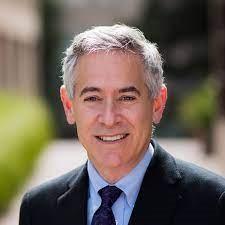
The overall message from all of Dr. Starr’s trainees was that of encouragement, humility and embracing diversity in all aspects of his work. When trainees enter the lab, the first discussion is about fulfilment and good mental health. Many remarked on his focus on inclusivity, with one expressing profound appreciation of his recognition of her ethnicity and embracing her as a diverse voice, rather than acting as if he were “blind to it.” One trainee talked appreciatively of his learning Spanish to “better understand” his patients and promote inclusivity in the lab. He encourages ideas and supports trainee-derived projects that are far afield from his own research focus because that’s what’s good for them (and ultimately, the lab benefits from trainee empowerment and diversity of projects). Trainees talked of his remarkable talent of leading from behind, with a focus on promoting their success, sending all to meetings and introducing them to leaders in the field. Numerous letters spoke of trainee origins from backgrounds disadvantaged one way or another, struggles with imposter syndrome and the help that he provided in growing confidence within themselves. Dr. Starr has provided books on issues related to expressed personal concerns, such as fear of a female trainee about succeeding in a male-dominated field, and identified and introduced trainees to specific individuals who could help with their particular concerns. In a potentially intimidating environment run by a highly successful neurosurgeon-scientist, whose research projects focused on complicated, quantitative experiments done with a high regard for rigor, Dr. Starr’s demeaner and encouragement led to success and joy for many who entered the lab with pre-conceived doubts of their own ability. Dr. Starr's clinical interests are in functional neurosurgery, especially in the use of implanted devices to improve brain function. His laboratory is devoted to analyzing how movement disorders affect the network function of the brain, understanding the central mechanisms of therapeutic neurostimulation, and improving the effectiveness of neurostimulation.
